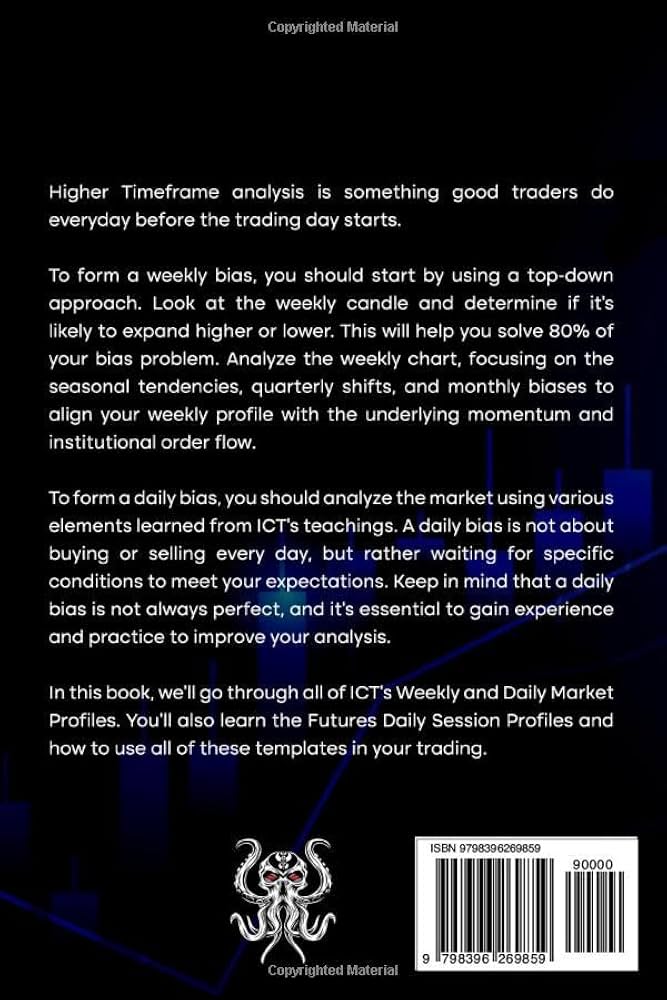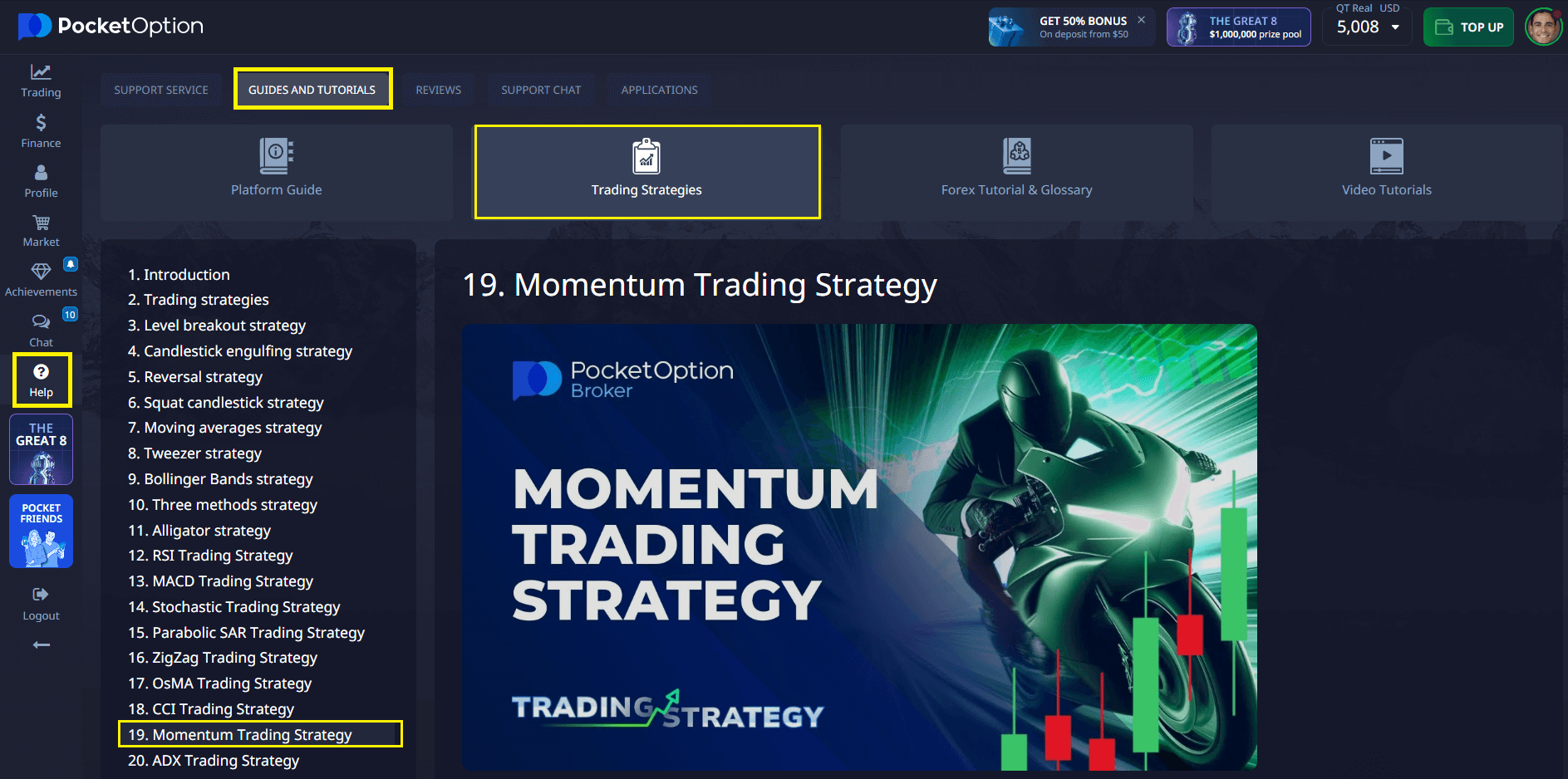Did you know that even the most seasoned traders can turn into nervous wrecks when the market swings? In the high-stakes world of momentum trading, psychological factors play a crucial role in determining success. This article dives deep into the mental traits that contribute to momentum trading success, highlighting how fear and confidence can influence decision-making. We’ll explore the impact of cognitive biases and social influences, providing strategies to manage emotions and build mental resilience. The discussion also covers past trading experiences, common psychological pitfalls, and the importance of self-discipline. Lastly, we’ll share mindfulness techniques to enhance performance and cultivate a winning mindset. Join DayTradingBusiness as we uncover the psychological secrets that can make or break a trader's success.
What psychological traits contribute to momentum trading success?
Key psychological traits for momentum trading success include:
1. Discipline: Sticking to a trading plan and not deviating from established strategies.
2. Patience: Waiting for the right opportunities and allowing trades to develop.
3. Emotional Control: Managing fear and greed to avoid impulsive decisions.
4. Confidence: Trusting one's analysis and instincts to make timely trades.
5. Adaptability: Adjusting strategies based on market changes and new information.
These traits help traders capitalize on price trends effectively.
How does fear impact decision-making in momentum trading?
Fear can significantly skew decision-making in momentum trading. When traders fear losses, they may exit positions too early, missing potential gains. Conversely, fear of missing out (FOMO) can lead to impulsive buying, inflating prices beyond rational levels. Fear also triggers overreactions to market volatility, causing traders to make hasty decisions rather than sticking to their strategies. Overall, fear can create a cycle of reactive trading, undermining long-term success in momentum trading.
What role does confidence play in momentum trading outcomes?
Confidence significantly influences momentum trading outcomes by affecting decision-making and risk management. Traders with high confidence are more likely to stick to their strategies, capitalize on trends, and execute trades without hesitation. This conviction can lead to better timing in entering and exiting positions, ultimately enhancing profits. Conversely, a lack of confidence may result in second-guessing, missed opportunities, and premature exits, negatively impacting performance. Overall, confidence helps traders maintain discipline and trust in their analysis, which is crucial for success in momentum trading.
How can traders manage emotions during momentum trading?
Traders can manage emotions during momentum trading by setting clear entry and exit rules, using stop-loss orders, and sticking to a trading plan. Keeping a trading journal helps track thoughts and feelings, allowing for better self-awareness. Practicing mindfulness techniques can also reduce anxiety and maintain focus. Regularly reviewing trades helps identify emotional triggers and develop strategies to cope with them. Finally, maintaining a balanced lifestyle outside of trading can improve overall emotional resilience.
What cognitive biases affect momentum traders?
Momentum traders are affected by several cognitive biases:
1. Herding Bias: Traders often follow the crowd, buying stocks that are gaining popularity, which can lead to overvaluation.
2. Confirmation Bias: They may seek information that supports their trading decisions while ignoring contrary evidence, reinforcing their beliefs about price trends.
3. Overconfidence Bias: Many momentum traders overestimate their knowledge and skills, leading to excessive risk-taking and ignoring potential losses.
4. Recency Bias: Traders tend to focus on recent price movements, assuming that trends will continue, which can result in poor decision-making.
5. Loss Aversion: The fear of losing profits can prevent traders from exiting losing positions, negatively impacting their overall performance.
Understanding these biases can help momentum traders make more rational decisions and improve their success rate.
How does social influence impact momentum trading success?
Social influence significantly impacts momentum trading success by shaping traders' perceptions and decisions. When traders observe others buying or selling, they may feel compelled to follow suit, driven by fear of missing out or the desire for social validation. This herd behavior can amplify price movements, creating stronger momentum. Additionally, social media and online forums can spread information quickly, affecting sentiment and leading to rapid trading decisions. Understanding these psychological factors can help traders leverage social influence to enhance their momentum trading strategies.
What psychological strategies can improve momentum trading performance?
To improve momentum trading performance, focus on these psychological strategies:
1. Emotional Discipline: Stick to your trading plan and avoid impulsive decisions based on fear or greed.
2. Mindfulness: Practice staying present to reduce anxiety and improve focus during trades.
3. Positive Self-Talk: Use affirmations to build confidence and combat negative thoughts after losses.
4. Accepting Losses: Recognize that losses are part of trading. View them as learning opportunities rather than failures.
5. Routine Development: Establish a consistent trading routine to create a sense of normalcy and reduce stress.
6. Visualization: Imagine successful trades and scenarios to reinforce a positive mindset.
7. Risk Management Mindset: Emphasize risk control over profit maximization to reduce fear and enhance decision-making.
8. Community Engagement: Join trading groups for support and shared experiences, which can alleviate isolation and provide motivation.
Implementing these strategies can help maintain focus and improve overall trading performance in momentum trading.
How can traders build mental resilience for momentum trading?

Traders can build mental resilience for momentum trading by developing a strong routine, setting clear goals, and practicing mindfulness. Regularly reviewing trades helps identify patterns and improve decision-making. Embracing losses as learning opportunities fosters a growth mindset. Visualization techniques can enhance confidence, while maintaining a balanced lifestyle supports emotional stability. Lastly, connecting with other traders for support and sharing experiences can strengthen mental resilience.
What is the impact of stress on momentum trading decisions?
Stress can significantly impair momentum trading decisions by clouding judgment and leading to impulsive actions. High stress levels may cause traders to overreact to market fluctuations, resulting in premature exits or missed opportunities. It can also hinder the ability to stick to trading plans, making it difficult to maintain discipline. Additionally, stress can affect focus and analytical thinking, reducing the effectiveness of strategy execution in momentum trading.
How Do Psychological Factors Influence Day Trading Momentum Strategies?
Day trading momentum strategies involve buying stocks that are trending upward and selling those that are trending downward, capitalizing on price movements. Key psychological factors in momentum trading success include maintaining discipline to stick to strategies, managing emotions during volatility, and having the confidence to take calculated risks. Traders must also be aware of herd mentality, as it can lead to impulsive decisions.
Learn more about: What Are Day Trading Momentum Strategies?
Learn about How Do Institutional Traders Influence Day Trading Strategies?
How do past trading experiences shape momentum trading psychology?

Past trading experiences significantly shape momentum trading psychology by influencing risk tolerance, emotional responses, and decision-making processes. Positive experiences can boost confidence and reinforce a belief in following trends, while negative experiences may lead to fear or hesitation. Traders often develop biases based on previous outcomes, impacting their ability to objectively analyze new opportunities. A history of successful trades can cultivate a more aggressive approach, while repeated losses might result in a more cautious strategy. Ultimately, these psychological factors dictate how traders react to market movements and their overall success in momentum trading.
Learn about How does leverage affect day trading psychology?
What are the common psychological pitfalls in momentum trading?
Common psychological pitfalls in momentum trading include:
1. Overconfidence: Traders may overestimate their ability to predict trends, leading to excessive risk-taking.
2. Chasing Losses: The urge to recover losses can result in poor decision-making and increased losses.
3. Fear of Missing Out (FOMO): This can push traders to enter positions impulsively, often at unfavorable prices.
4. Herd Mentality: Following the crowd can lead to buying high and selling low, undermining strategy.
5. Confirmation Bias: Traders may focus on information that supports their positions while ignoring contrary evidence.
6. Emotional Decision-Making: Stress and anxiety can cloud judgment, resulting in irrational trades.
Being aware of these pitfalls can help traders maintain discipline and improve their momentum trading strategies.
Learn about What Are Common Psychological Pitfalls in Day Trading?
How can mindfulness techniques enhance momentum trading success?
Mindfulness techniques can enhance momentum trading success by improving focus, reducing emotional biases, and fostering better decision-making. Practicing mindfulness helps traders stay present, enabling them to react to market changes without being influenced by fear or greed. Techniques like meditation or deep-breathing exercises can decrease anxiety, allowing for clearer analysis of trends. This mental clarity aids in sticking to trading strategies and managing risk effectively. Additionally, mindfulness encourages patience, helping traders avoid impulsive actions during volatile market conditions. Overall, integrating mindfulness into trading can lead to more disciplined and informed trading decisions, ultimately boosting success in momentum trading.
What is the importance of self-discipline in momentum trading?
Self-discipline in momentum trading is crucial because it helps traders stick to their strategies and avoid emotional decisions. It enables consistent adherence to risk management rules, preventing impulsive trades that can lead to significant losses. With self-discipline, traders can maintain focus during market fluctuations and resist the urge to chase after every price movement. This steadiness fosters better decision-making, allowing traders to capitalize on trends effectively. Ultimately, self-discipline is key to sustaining long-term success in momentum trading.
How does overconfidence lead to pitfalls in momentum trading?

Overconfidence in momentum trading can lead to significant pitfalls. Traders may underestimate risks, ignoring signs of market reversal due to a belief that their strategies are infallible. This can result in holding losing positions too long, amplifying losses. Moreover, overconfident traders might overtrade, increasing transaction costs and reducing overall profitability. They may also fail to adapt to changing market conditions, sticking to their biases instead of adjusting strategies. Ultimately, this overconfidence can cloud judgment, leading to poor decision-making and financial setbacks.
What psychological factors differentiate successful and unsuccessful momentum traders?
Successful momentum traders often exhibit strong emotional discipline, confidence in their strategies, and a willingness to cut losses quickly. They manage fear and greed effectively, making rational decisions based on data rather than emotion. Unsuccessful traders, on the other hand, tend to hold onto losing positions, driven by hope or denial. They may lack a clear trading plan, leading to impulsive decisions fueled by anxiety or overconfidence. Ultimately, the ability to stay focused, adhere to a strategy, and manage emotions differentiates successful traders from those who struggle.
How can traders develop a winning mindset for momentum trading?
Traders can develop a winning mindset for momentum trading by focusing on discipline, emotional control, and adaptability.
1. Discipline: Stick to a well-defined trading plan. Set clear entry and exit points to avoid impulsive decisions.
2. Emotional Control: Manage fear and greed. Recognize emotional triggers and practice techniques like mindfulness to maintain composure during trades.
3. Adaptability: Stay flexible. Market conditions change quickly, so be prepared to adjust strategies based on new information or trends.
4. Continuous Learning: Analyze past trades to understand successes and failures. Embrace a growth mindset to learn from experiences.
5. Risk Management: Use stop-loss orders to protect capital. This reduces anxiety and allows for more confident trading.
By cultivating these psychological factors, traders can enhance their success in momentum trading.
Conclusion about Psychological Factors in Momentum Trading Success
Understanding the psychological factors that influence momentum trading is crucial for achieving long-term success. Traits such as confidence, emotional management, and mental resilience play a significant role in decision-making. By recognizing cognitive biases and social influences, traders can mitigate fear and overconfidence, ultimately enhancing their performance. Mindfulness and self-discipline are essential strategies for overcoming common psychological pitfalls. To improve your momentum trading outcomes, embrace these psychological insights and tools. For more in-depth strategies and support, refer to DayTradingBusiness.